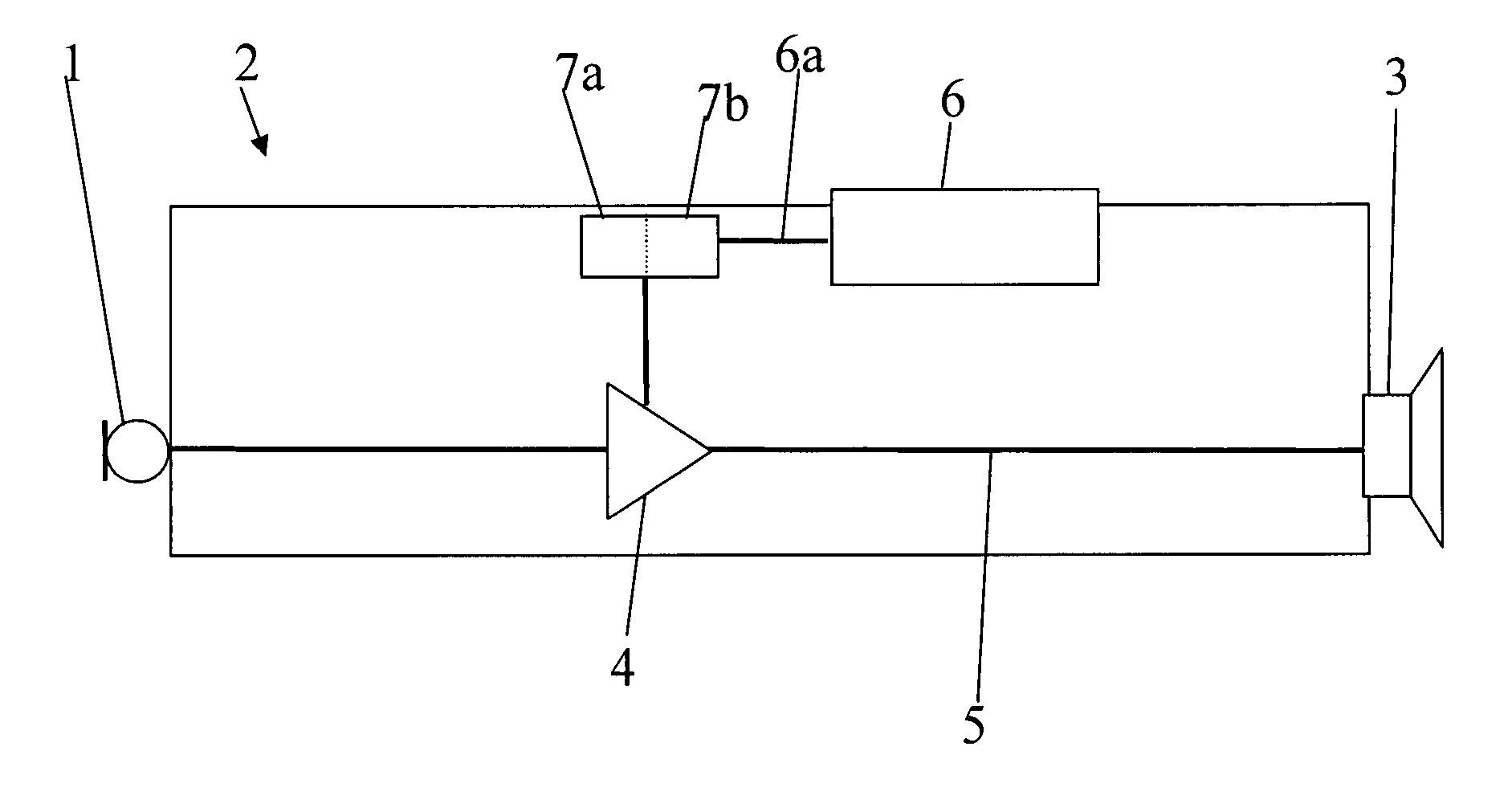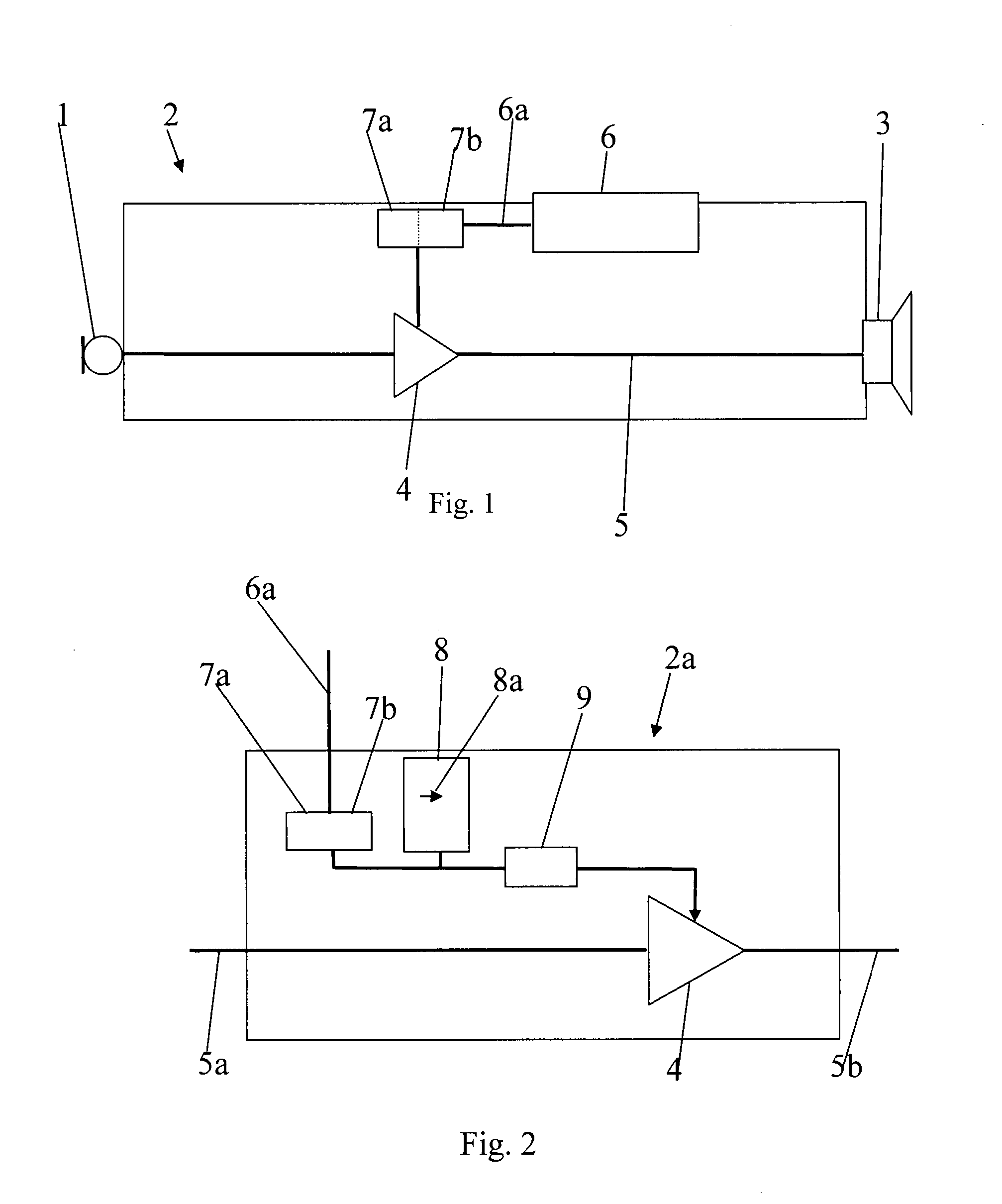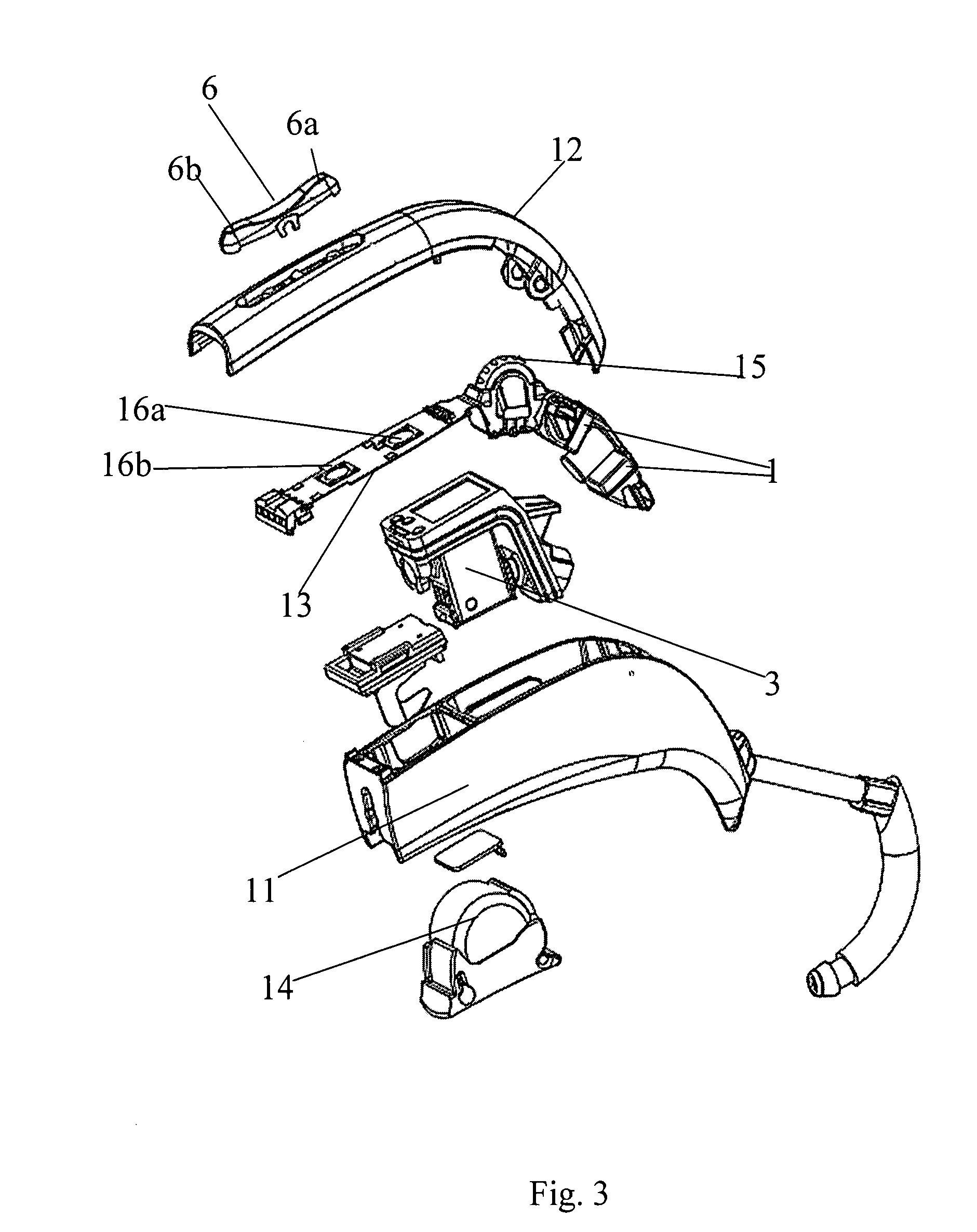Volume control in a hearing aid and hearing aid with volume control
a technology of volume control and hearing aid, which is applied in the direction of transducer casing/cabinet/support, electrical transducer, electrical apparatus, etc., can solve the problems of pressing buttons, achieve quick or immediate and adequate reaction, effect of quick and adequate volume reduction, and precise fine tuning of volume
- Summary
- Abstract
- Description
- Claims
- Application Information
AI Technical Summary
Benefits of technology
Problems solved by technology
Method used
Image
Examples
Embodiment Construction
[0015] A hearing aid according to the prior art has one register for storing of the step size used for the volume control. This step size is used both for volume up and for volume down action. If the user chooses a large step size in order to allow for quick action of the turning down of the volume, he will have to accept a large pitch, and loss of possibility of fine tuning of the volume setting. If alternatively he chooses a small step size, the step size for turning down the volume will also be small. This means that the volume down button will have to be touched several times to effect adequate damping of the sound by the onset of high sounds in the environment.
TABLE 1Volume regulation.
[0016] Table 1 shows am example of possible gain adjustments in a hearing aid according to the invention. Initially, the Volume Control is set at index 4 (middle of gain table) resulting in a gain of 0 dB. This is indicated by arrow a.
[0017] The user then turns the volume control one step up ch...
PUM
 Login to View More
Login to View More Abstract
Description
Claims
Application Information
 Login to View More
Login to View More - R&D
- Intellectual Property
- Life Sciences
- Materials
- Tech Scout
- Unparalleled Data Quality
- Higher Quality Content
- 60% Fewer Hallucinations
Browse by: Latest US Patents, China's latest patents, Technical Efficacy Thesaurus, Application Domain, Technology Topic, Popular Technical Reports.
© 2025 PatSnap. All rights reserved.Legal|Privacy policy|Modern Slavery Act Transparency Statement|Sitemap|About US| Contact US: help@patsnap.com



